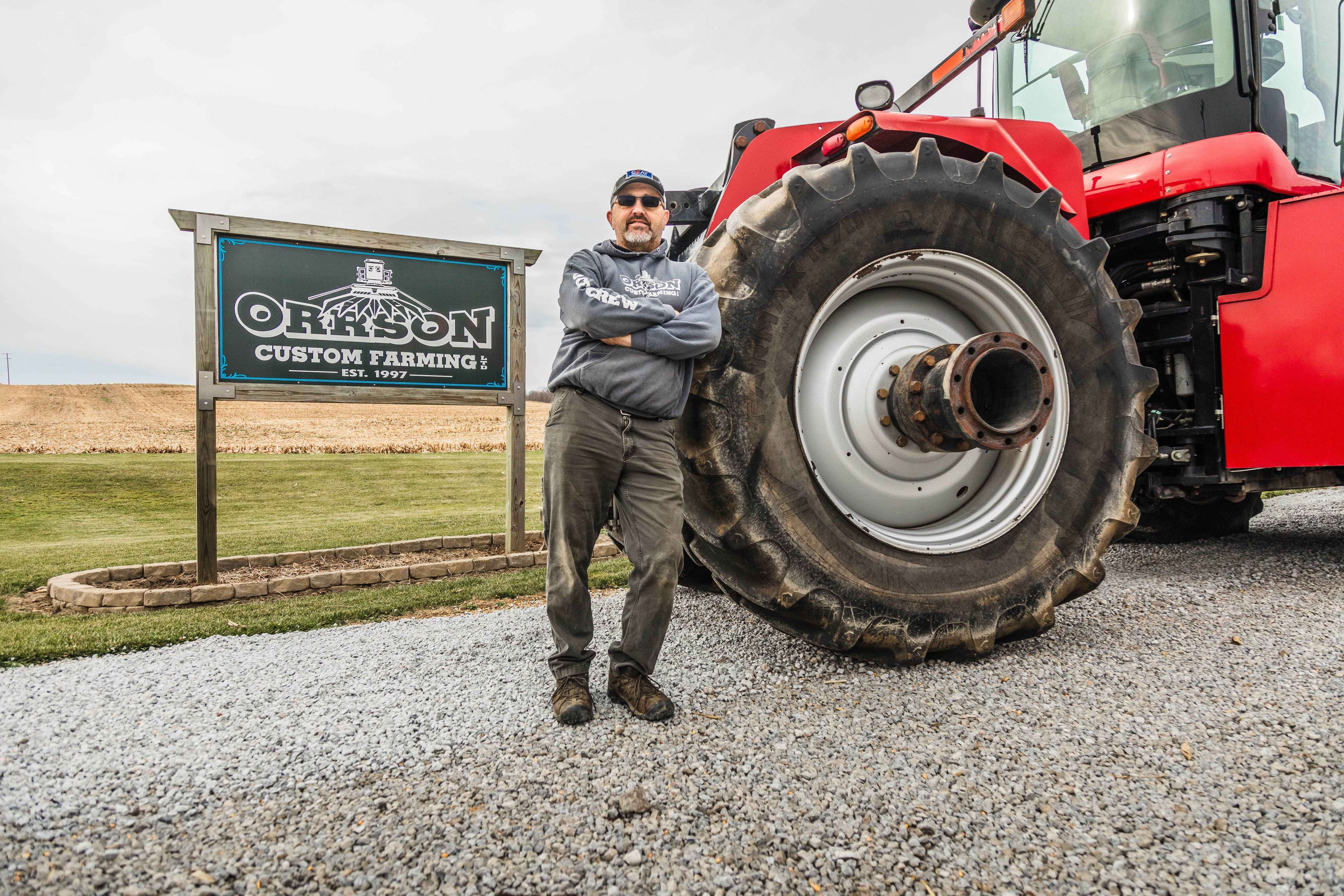
ceat-speciality:blogs-tags/all,ceat-speciality:blogs-tags/farming-advice
American Farmers are Facing Major Headwinds in 2025American Farmers are Facing Major Headwinds in 2025
American farmers are confronting several significant challenges in 2025, from rising input costs to labor shortages and more major headwinds to a profitable year.
The biggest challenges in 2025 are:
Economic Pressures and Financial Stability
Farmers are experiencing financial difficulties due to rising input costs, including fertilizers and crop protection products. A survey indicated that 48% of farmers consider these increased expenses a primary concern. Additionally, many are facing persistent per-acre losses and difficulties securing operating loans, leading to broader economic challenges in rural communities.
Climate Change and Environmental Factors
Climate change is impacting agricultural productivity through altered precipitation patterns, increased temperatures, and more frequent extreme weather events. These changes affect crop yields, soil health, and water availability, posing significant challenges for farmers.
Labor Shortages
Labor shortages remain a critical issue, with agriculture being one of the sectors most affected. The Farm Bureau has called for solutions to address this limiting factor, as farmers struggle to find sufficient workers to meet operational needs.
Policy and Regulatory Uncertainties
The 2025 Farm Bill is a focal point of concern, with farmers facing uncertainties regarding crop insurance, safety nets, and other support programs. Changes in trade policies, biofuel regulations, and environmental standards add to the complexity, potentially affecting market access and operational practices.
With all these challenges, farmers are looking to reduce their operating costs and increase their yields any way possible. That’s where CEAT Ag tires come in!
CEAT's tires, with their combination of performance and price point, are especially appealing in this challenging environment where farmers are looking for ways to stretch their budgets without sacrificing reliability. CEAT tires help reduce downtime and maintenance costs - that's a win for farmers who rely on their equipment to stay operational through busy seasons.
According to Rob McCulligh, OE Sales Manager for TIRECRAFT Ontario, CEAT Specialty is knocking it out of the park on the value front. “The main selling point for CEAT is the quality of the tire and the price point. CEAT offers an unbelievable combination of price and quality,” he noted.
CEAT farm tires, like the CEAT FARMAX R80, are well recognized for their durability and roadability -- critical benefits for farmers who need tires that can withstand the daily rigors of farm work while also performing well on the road when they’re hauling equipment or traveling between fields. Durability means fewer replacements, less downtime, fewer maintenance issues and an overall low total cost of ownership for tires – all very important when every hour and every dollar count.
Read the full blog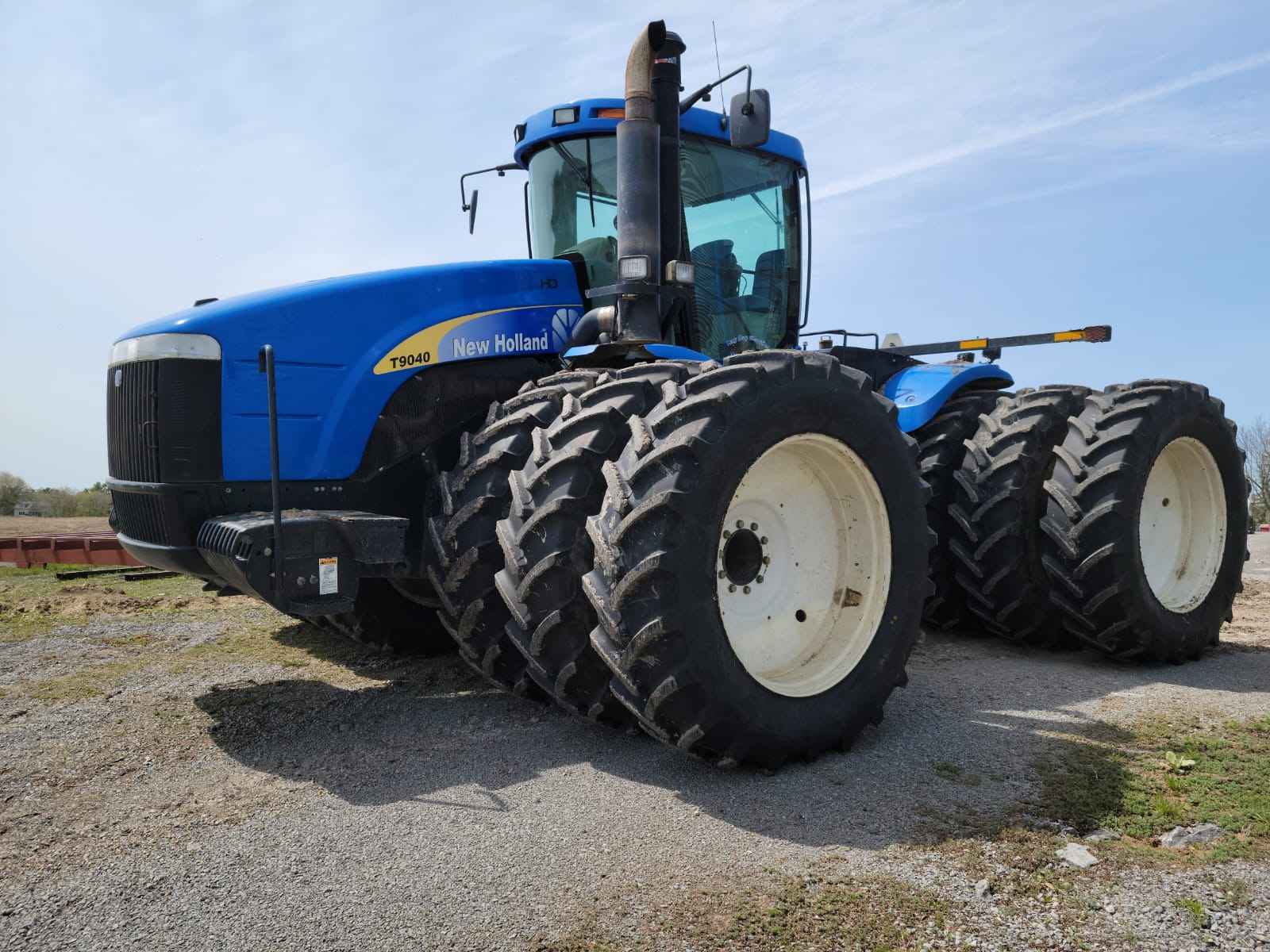
ceat-speciality:blogs-tags/all,ceat-speciality:blogs-tags/farming-advice
Check Your Tires Before Planting SeasonCheck Your Tires Before Planting Season
Spring planting is coming soon. Now’s a good time to develop a well-conceived crop production plan – one that is built on a solid foundation of observation, analysis, and adaptation.
By assessing past experiences—what grew well, what pests or diseases appeared, and how weather patterns influenced crop health—farmers can refine their strategies for future seasons.
Here are a few key points to consider when crafting a successful crop production plan:
Crop Rotation: By rotating crops, you can reduce the buildup of pests and diseases in the soil and improve soil health. It also helps maintain or improve soil fertility.
Soil Health and Fertility: Understand the soil's needs based on past seasons. Adjust fertilization practices, incorporate organic matter, and use cover crops to enhance soil health.
Pest and Disease Management: Monitor pest trends from previous years and choose resistant varieties, use integrated pest management (IPM) strategies, or plant companion crops to naturally control pests.
Weather Patterns and Climate Trends: Analyze long-term weather data to predict trends like temperature fluctuations, rainfall, or drought, and plan accordingly. This may influence your planting schedules or the variety of crops to grow.
Resource Management: Budget for water, labor, and machinery. Assess past seasons' resource needs to avoid shortages or waste.
Examine your Tires: Evaluating your farm tires is a smart move, and with the many demands of farming, having the right tires can truly make a difference in the success of your operations. CEAT Specialty’s focus on high-quality, durable tires for agricultural use is a great option for enhancing your farm’s efficiency and performance.
The CEAT FARMAX radial tractor tire line, for example, delivers long tread life, dependable traction in the field, a smooth and steady ride on the road, and low soil compaction.
This is accomplished through a R1-W tread depth for extended tire lifespan, lower shoulder angle for enhanced traction, and rounded shoulders to minimize soil and crop damage.
High technology at an affordable price – that is the CEAT advantage!
Read the full blog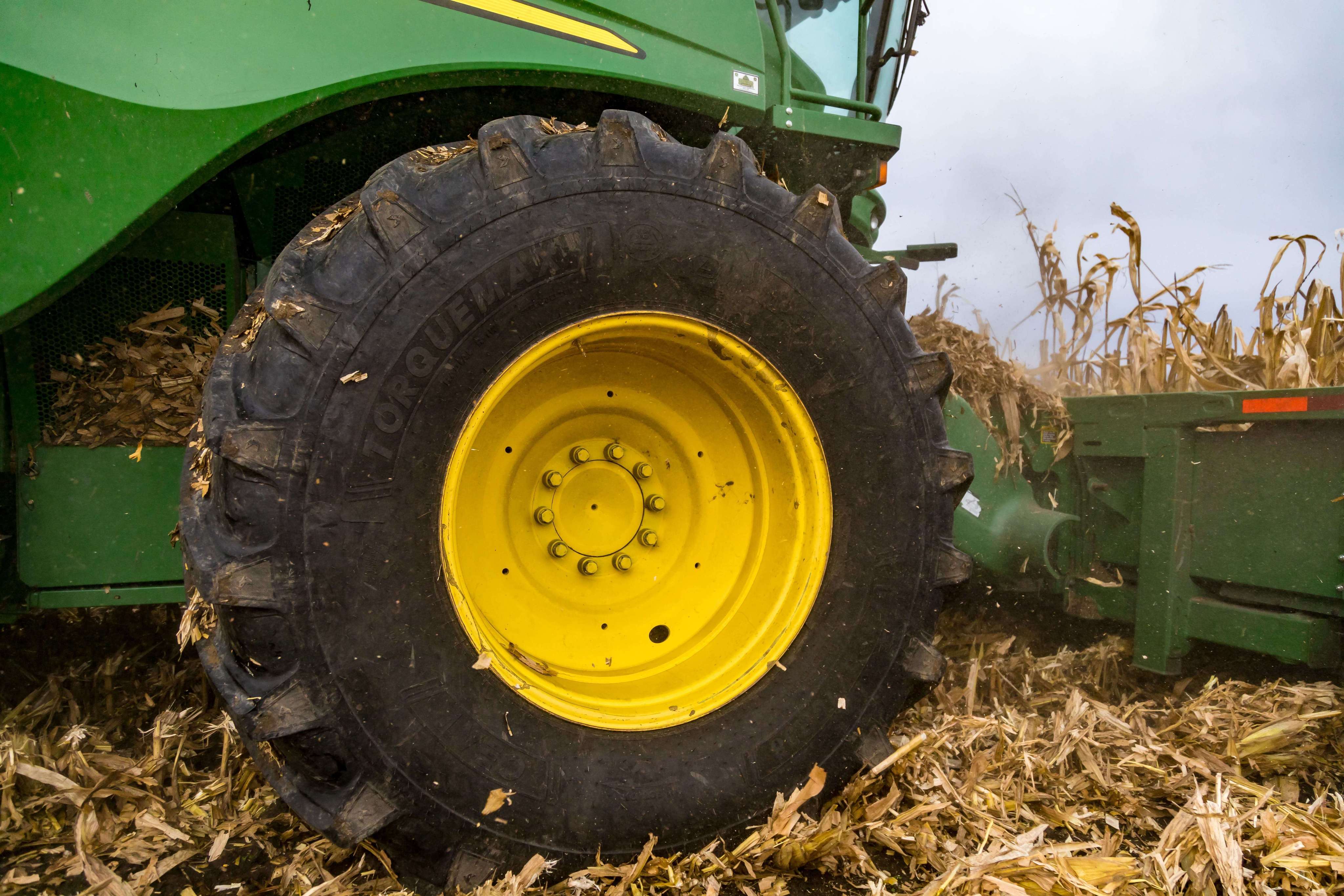
ceat-speciality:blogs-tags/all,ceat-speciality:blogs-tags/farming-advice
Prevent Down Time with CEAT Ag TiresPrevent Down Time with CEAT Ag Tires
What is the cost of down time when there are crops to harvest and a tractor tire is out of commission? Or you’re buying another set of tractor tires because your current set wore out much quicker than expected?
Farm tractor and implement tires are a significant investment, but don’t be penny wise and pound foolish! Buying the cheapest Ag tire could quite likely cost you more in the long term. Likewise, opting for the farm tire with the highest acquisition price is not a guarantee that you are getting good value.
Total cost of ownership --This is what matters the most – tread life and best service at the optimum acquisition price. Until you have experience with a new tire brand, follow your tire dealer’s advice based on his experience. The objective is to compare the acquisition price with the tread wear and overall performance achieved to determine the total cost of ownership (TCO). CEAT farm tractor tires, such as the Torquemax VF, are gaining rapid acceptance from North American farmers because they deliver a superior TCO.
CEAT is committed to providing North American farmers and ranchers high quality tires at an “honest price.” The company continually invests in R&D and its manufacturing plants to deliver the highest quality products to its customers. Of particular note, CEAT is totally committed to following Total Quality Management (TQM) principles. CEAT is the only tire company outside of Japan to receive the prestigious Deming Prize (in 2017) for TQM excellence.
Warranty -- Does the tire come with a warranty? Farm tractor tires are a significant investment for any farm or ranch, so a good warranty provides peace of mind. CEAT Ag radials are backed with a 7-year manufacturer’s warranty and a 3-year field hazard warranty. The warranty is very rarely needed but it provides good peace of mind.
Read the full blog
ceat-speciality:blogs-tags/all,ceat-speciality:blogs-tags/farming-advice
Protecting Soil Health has Immediate Economic Benefits for FarmersProtecting Soil Health has Immediate Economic Benefits for Farmers
There’s been a growing focus on how soil health practices, like no-till farming, reduced tillage, and cover crops, cannot only help improve sustainability but also provide immediate economic benefits.
The Soil Health Institute, headquartered in Morrisville, North Carolina, set out to confirm this when staff members interviewed 100 farmers in nine states who had been practicing no-till, using reduced tillage, or growing cover crops for at least five years. After conducting a partial budget analysis of the economic data gathered from the farms, the institute found that the answer to the question was a resounding yes: Implementing soil health practices can indeed be profitable. The nine states in the analysis are responsible for 71% of the corn and 67% of the soybeans grown in the United States. The states represented in the survey were Illinois, Indiana, Iowa, Michigan, Minnesota, Nebraska, Ohio, South Dakota, and Tennessee.
As reported by Successful Farming Magazine, in the study of farms where soil health practices have been used, net income increased for 85% of farmers growing corn and 88% of farmers growing soybeans. Some 67% reported achieving higher yields in all crops after adopting soil health practices than the yields they realized with their former conventional production systems. Farmers in the survey reduced the average cost to grow corn by $24 an acre and by $17 an acre to grow soybeans. Farmers surveyed increased net farm income by an average of $52 an acre for corn and $45 an acre for soybeans.
Recognizing the short-term and long-term benefits of good soil health to farmers, CEAT Specialty has emerged as a leading tire manufacturer in developing innovative solutions to protect the soil.
With farm machinery getting heavier all the time, tires are playing an increasing role in helping farmers operate the very large machinery while protecting the soil. For instance, CEAT Specialty is developing more and more Ag tires like the Spraymax with VF (very high flexion) and IF (increased flexion) technology. One of the most important developments in farm tires in recent years, VF tires have the ability to carry 40% more load or the same load with 40% less pressure. The gentler footprint of the Spraymax VF, designed for larger self-propelled sprayers, translates into less soil compaction and crop damage.
Read the full blog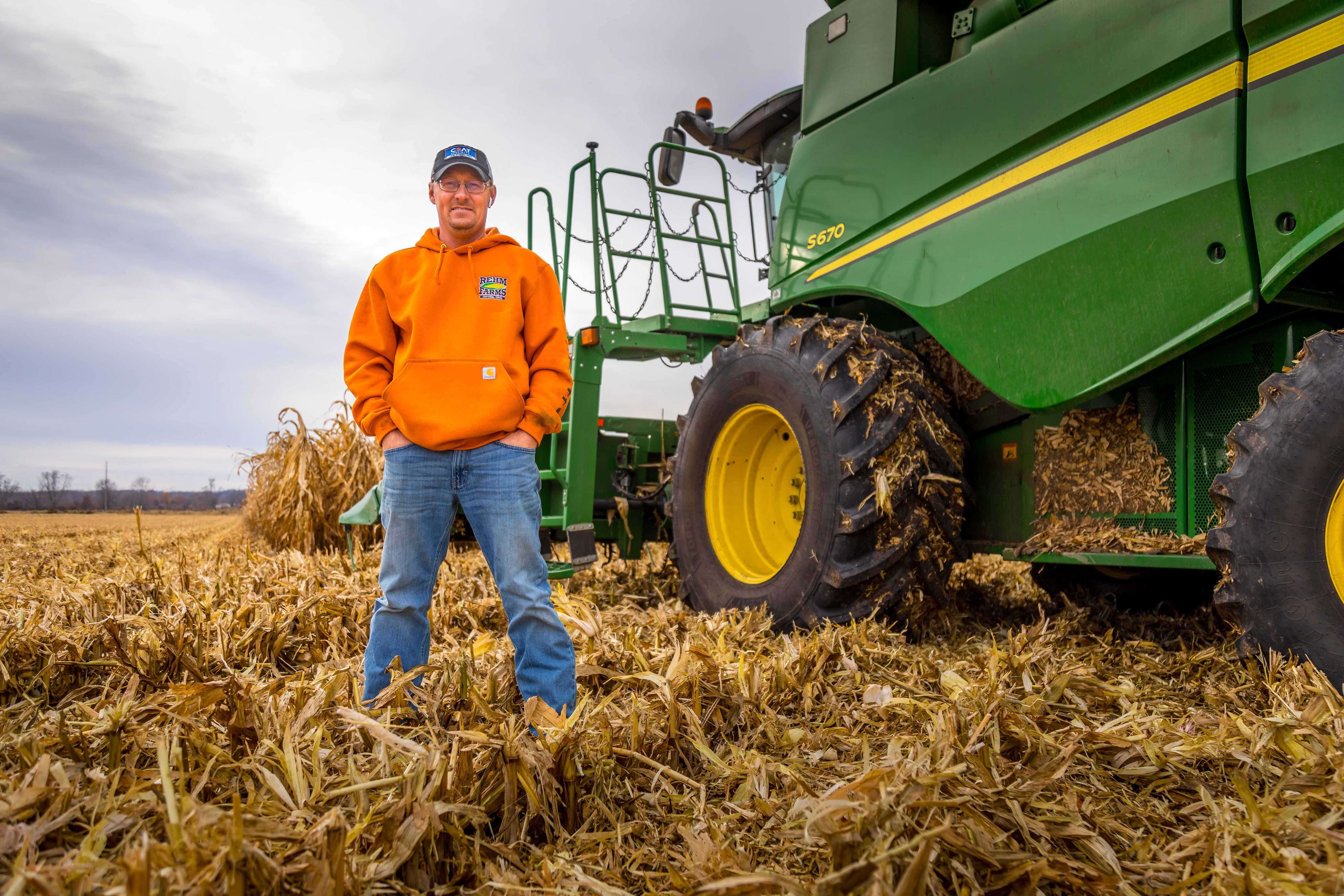
ceat-speciality:blogs-tags/all,ceat-speciality:blogs-tags/farming-advice
CEAT is the Tire of Choice in Tough TimesCEAT is the Tire of Choice in Tough Times
Farmers are feeling the pressure of rising input costs and fluctuating grain prices, so every cost-saving measure counts. They’re considering where to reduce input costs such as machinery, chemicals and fertilizer . . . that goes for tires as well.
Tires can be a significant expense, especially with the wear and tear that comes with carrying heavy equipment, working tough terrain and traveling many miles between fields. Ag tires, like the ones from CEAT Specialty, offer an attractive solution for today’s cash-challenged farmers because they balance durability and cost-effectiveness.
CEAT's tires, with their combination of performance and price point, are especially appealing in a market where farmers are looking for ways to stretch their budgets without sacrificing reliability. CEAT tires help reduce downtime and maintenance costs - that's a win for farmers who rely on their equipment to stay operational through busy seasons.
According to Rob McCulligh, OE Sales Manager for TIRECRAFT Ontario, CEAT Specialty is knocking it out of the park on the value front. “The main selling point for CEAT is the quality of the tire and the price point. CEAT offers an unbelievable combination of price and quality,” he noted.
CEAT farm tires, like the CEAT FARMAX R80, are well recognized for their durability and roadability -- absolutely critical benefits for farmers who need tires that can withstand the daily rigors of farm work while also performing well on the road when they’re hauling equipment or traveling between fields. Durability means fewer replacements, less downtime, and fewer maintenance issues, which is key when every hour counts during the growing season.
Read the full blog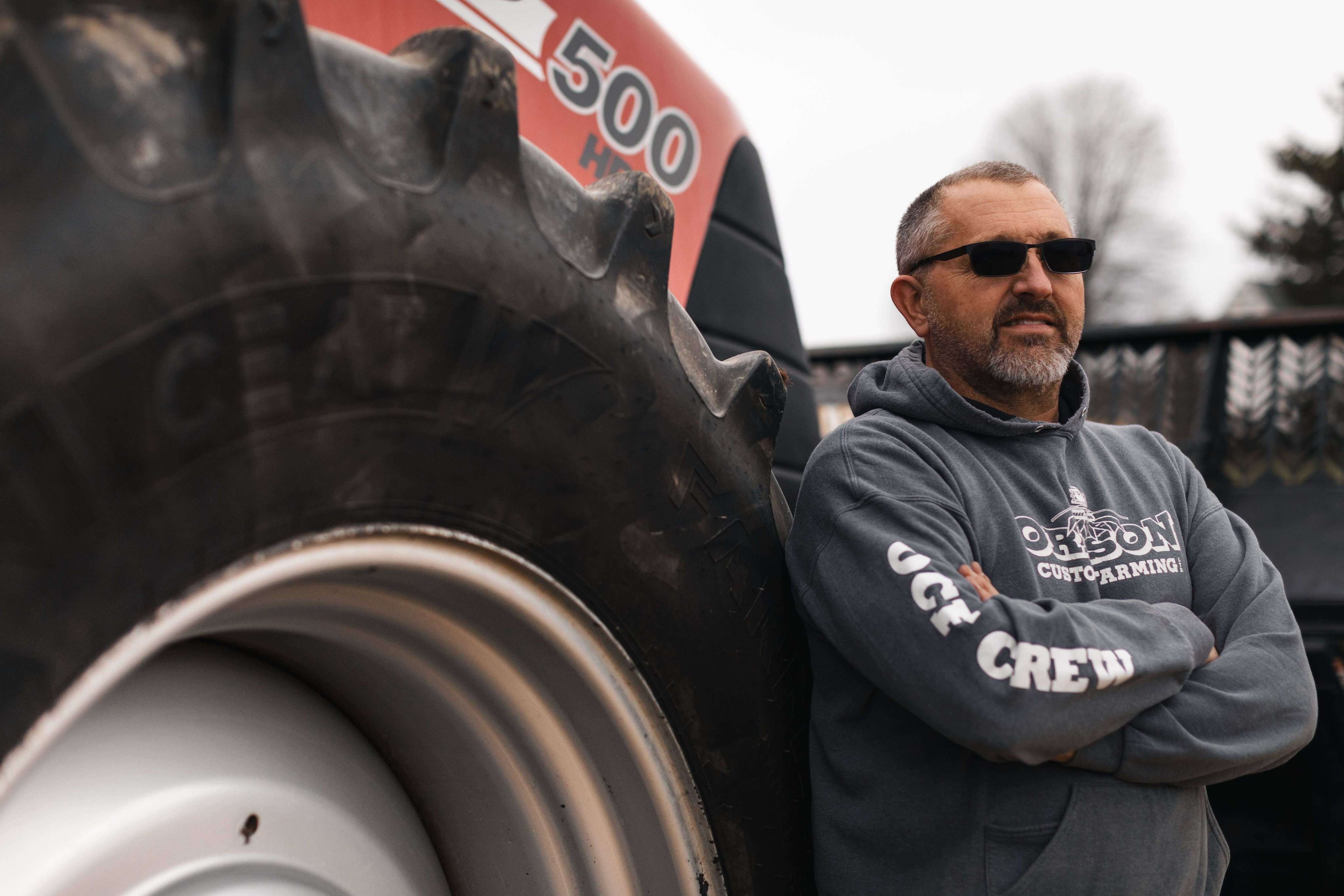
ceat-speciality:blogs-tags/all,ceat-speciality:blogs-tags/farming-advice
Farmers Turning to Used EquipmentFarmers Turning to Used Equipment
What began as a hopeful year for U.S. farmers ended with declining farm income precipitated by brutally low commodity prices. Unfortunately, all signs point to another difficult season in 2025.
For farmers, a return to basic business fundamentals is in order. They dare not let spending outpace revenue. This may mean putting off capital purchases of new equipment and investing in used equipment.
According to trade association data, U.S. farmers are trimming their equipment spending and purchasing used equipment via auctions. Overall, U.S. dealer sales for ag tractors fell 14.5% in November compared to the year before, based on the latest sales report from the Association of Equipment Manufacturers. Combine sales, likewise, remained soft, with a year-over-year decline of 24%, continuing a downward trend that took off last spring. On the flip side, auctions for used farm equipment are very active.
Tires are also a significant operating expense, so selecting the right tires is even more critical in tough economic conditions. When money is tight, buying the cheapest Ag tire might seem like a good option but it could quite likely cost more in the long term due to a short life. Likewise, opting for the farm tire with the highest acquisition price is not a guarantee of good value (i.e., acquisition price vs. hours of operation) CEAT delivers long tread life, good performance in the field and on the road, and durability at an “honest” price . . . or in other words, a low cost of ownership.
The mission of CEAT Specialty falls right in line with farmers needing to be conservative with their expenditures in these times of uncertainty. CEAT delivers the latest tire technologies at better value for farmers.
Read the full blog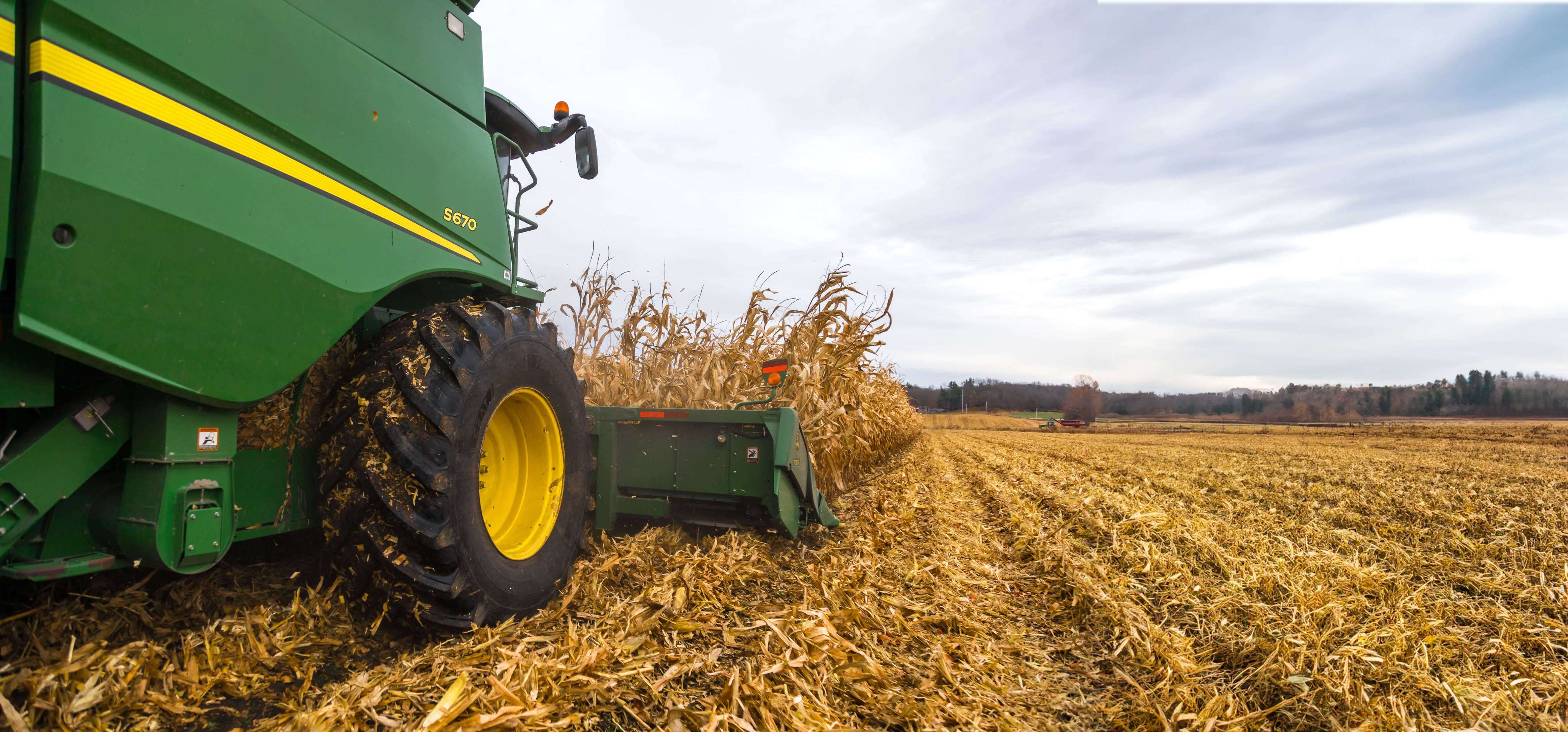
ceat-speciality:blogs-tags/all,ceat-speciality:blogs-tags/farming-advice
Four Essentials for Protecting Farm SoilFour Essentials for Protecting Farm Soil
Farmers face many challenges such as unpredictable weather and high input costs. Right up there is degradation of the soil. The long-term productivity of soil is essential for sustainable agriculture, and when it's not properly managed, it can lead to a vicious cycle of reduced yields and ecological harm.
Cover cropping, crop rotation, reduced tillage and the right Ag tires are crucial for maintaining soil health. Here's a deeper look at each of these methods:
1. Cover Cropping: Growing specific plants between main crops or during off-seasons can protect the soil from erosion, improve water retention, and add organic matter back into the soil. Certain cover crops like legumes also fix nitrogen, naturally enhancing soil fertility without synthetic fertilizers.
2. Crop Rotation: Alternating different types of crops each season helps break pest and disease cycles, improves soil structure, and reduces the risk of depleting specific soil nutrients. For example, rotating deep-rooted crops with shallow-rooted ones can help in nutrient cycling.
3. Reduced Tillage: Minimizing tillage reduces soil disturbance, preserving the natural structure and microbial life that are essential for soil health. It also helps in retaining organic matter, reducing erosion, and improving water infiltration.
4. Right Tires: Recognizing the urgency of addressing soil compaction, CEAT Specialty has emerged as a leading tire manufacturer in developing innovative solutions to mitigate soil degradation. Because farm machinery is getting heavier all the time, CEAT Specialty is developing more and more Ag tires like the Spraymax with VF (very high flexion) and IF (increased flexion) technology. One of the most important developments in farm tires in recent years, VF tires have the ability to carry 40% more load or the same load with 40% less pressure. The gentler footprint of the Spraymax VF, designed for self-propelled sprayers, translates into less soil compaction and, thus, less soil degradation.
Incorporating these practices into farming systems can foster long-term agricultural productivity while safeguarding the environment. Moreover, adopting regenerative agriculture practices that focus on restoring soil health goes hand-in-hand with these techniques and can have profound benefits in mitigating the degradation of farmland.
Addressing soil degradation isn't just about sustaining agricultural productivity—it's also about preserving ecosystems and the broader environment for future generations.
Read the full blog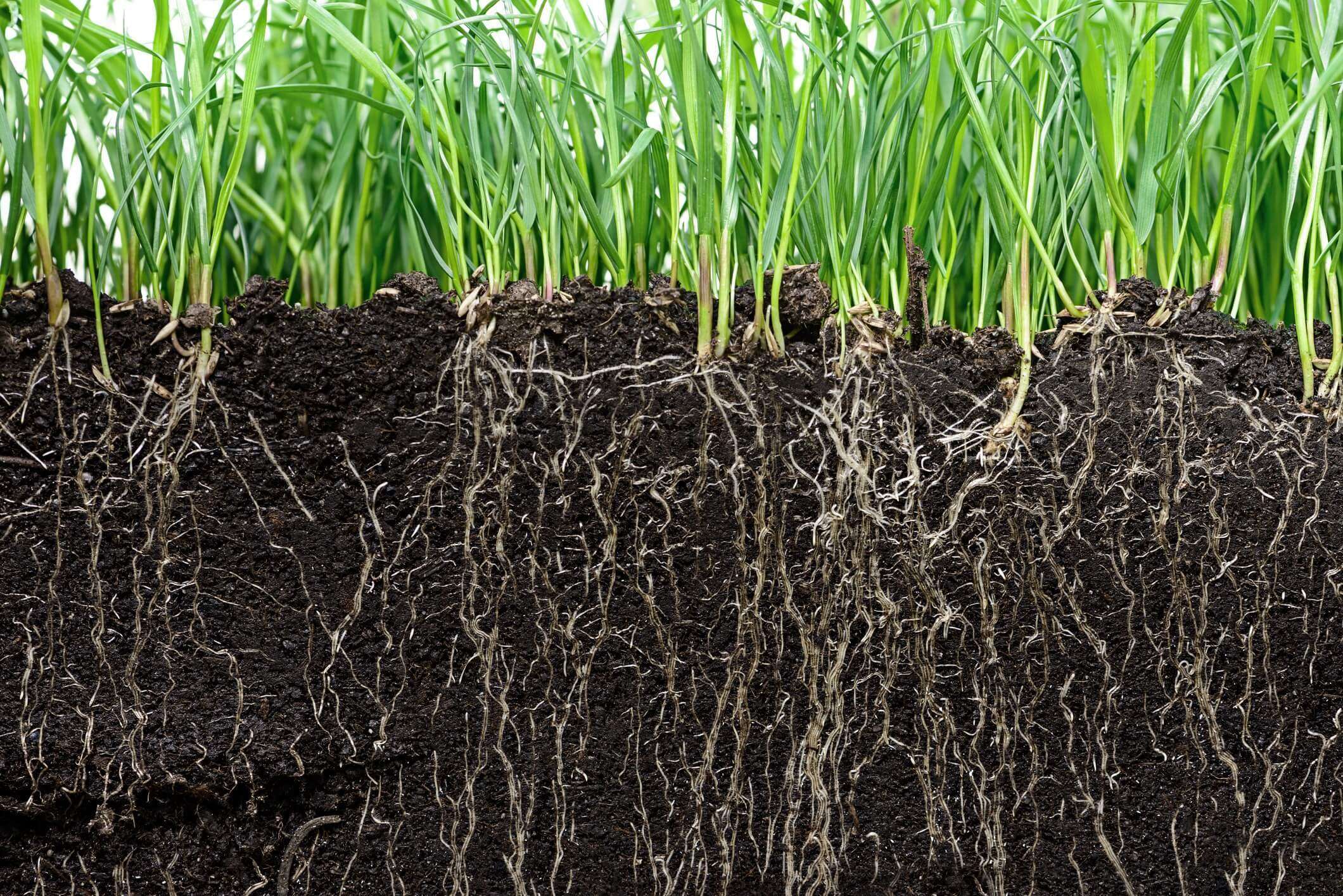
ceat-speciality:blogs-tags/all,ceat-speciality:blogs-tags/farming-advice
How to Measure for Soil CompactionHow to Measure for Soil Compaction
Someone once said the only farmer who doesn’t have soil compaction in his field is the one who never looks for it.
This quote captures a critical truth about soil health. Soil compaction is something that can be easily overlooked, especially in fields that are regularly cultivated or heavily trafficked by machinery. Agronomists and soil scientists often emphasize the importance of being proactive in looking for signs of compaction because, once it's present, it can be hard to reverse without significant intervention.
Compaction typically occurs when soil particles are pressed together too tightly, reducing pore space for air and water. This makes it harder for roots to grow and for soil organisms to thrive. It's not always immediately visible, and symptoms can vary—stunted crop growth, poor drainage, or areas where water ponds are often early indicators.
Regularly checking for compaction, especially at different soil depths, is essential to maintain optimal conditions for plant growth. Some common methods for detecting compaction include digging test pits, using penetrometers to measure soil resistance, or even just watching how soil behaves under different conditions.
Finding soil compaction
To find soil compaction, take a tile probe to the field and poke it into the ground at various locations. If it meets resistance, often a few inches below the surface, that is likely soil compaction,
Or you can borrow or invest in a soil penetrometer, which is a steel rod much like a tile probe, but with a gauge attached to it. The harder you must push to get the probe into the ground, the higher the soil compaction reading. Most register in green, yellow and red zones, with yellow and red indicating soil compaction building up.
While weather during the growing season plays a big part in determining if you will see much effect from soil compaction, especially in soybeans, compacted layers likely still exist, even in wetter seasons when the impact on growth is less pronounced.
The right tires will help
Tires can play a significant role in mitigating soil compaction. Recognizing the urgency of addressing soil compaction, CEAT Specialty has emerged as a leading tire manufacturer in developing innovative solutions to mitigate this threat.
Because farm machinery is getting heavier all the time, CEAT Specialty is developing more and more Ag tires like the Spraymax with VF (very high flexion) and IF (increased flexion) technology. One of the most important developments in farm tires in recent years, VF tires have the ability to carry 40% more load or the same load with 40% less pressure. The gentler footprint of the Spraymax VF, designed for self-propelled sprayers, translates into less soil compaction and crop damage.
Read the full blog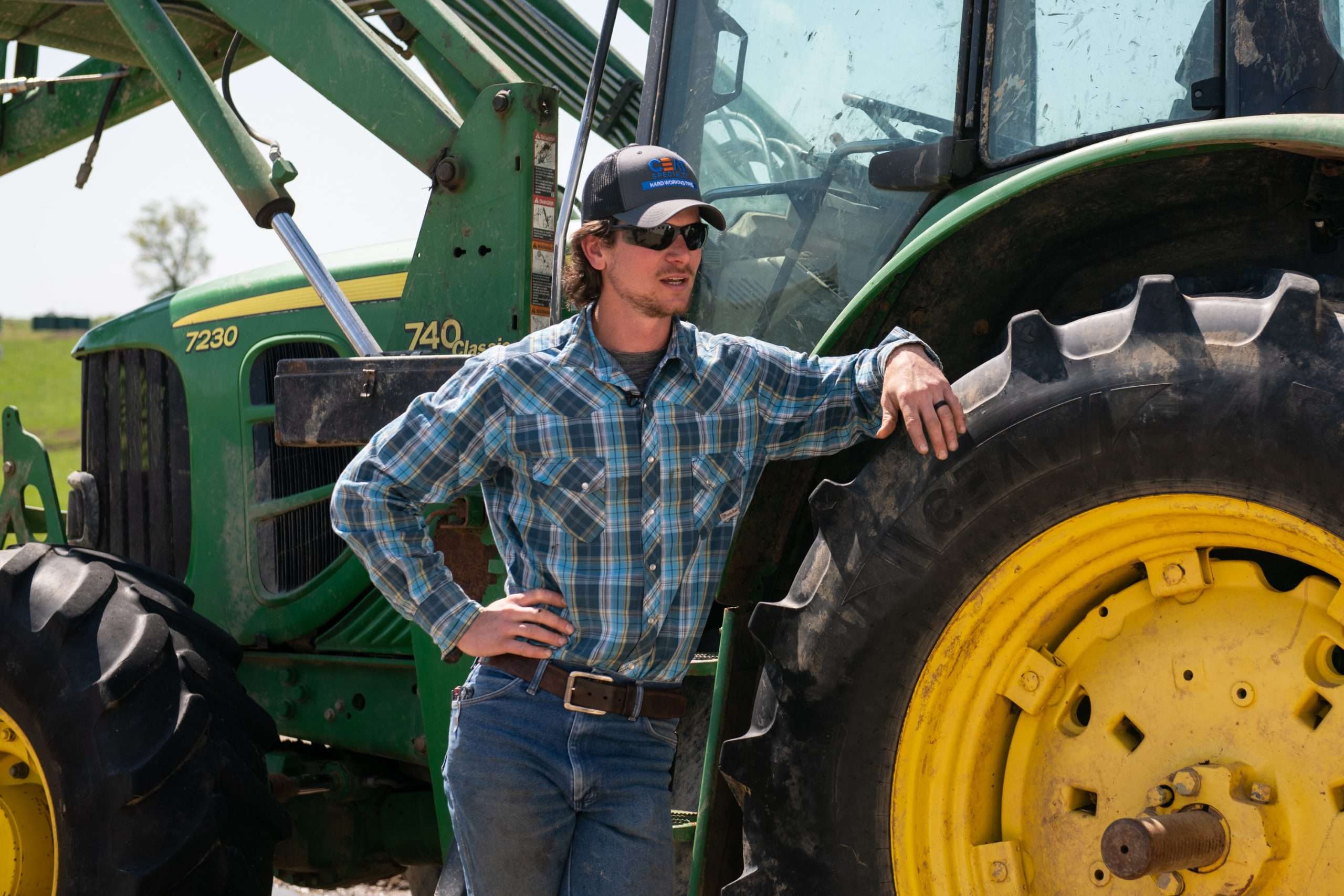
ceat-speciality:blogs-tags/all,ceat-speciality:blogs-tags/farming-advice
CEAT Specialty Tires Pushing the Technology Envelope to Increase Farmer ProductivityCEAT Specialty Tires Pushing the Technology Envelope to Increase Farmer Productivity
The agricultural sector is poised for increased productivity as farm tire manufacturers such as CEAT Specialty continue to push the technology envelope.
Farm tractor tires play a vital role in ensuring efficient and reliable performance in agricultural machinery — tires that can withstand heavy loads, provide traction in various terrains, offer a smooth ride on the road and deliver durability for long hours of operation. As farmers embrace advanced technologies and seek to optimize their operations, the demand for reliable farm tractor tires is expected to surge.
Several factors contribute to the anticipated expansion of the farm tractor tires market. The rising global population and the consequent need for increased food production drive the demand for modern farming equipment, including tractors. Additionally, the growing trend of precision farming, where farmers rely on technology for precise planting and harvesting, requires tires that can handle the demands of specialized machinery.
Manufacturers like CEAT Specialty are investing in research and development to develop tires with improved tread patterns, enhanced puncture resistance, and increased load-carrying capacity. These innovations contribute to higher efficiency, reduced downtime, and enhanced productivity in agricultural operations.
Featuring innovative rubber compounds, tread design and construction, the CEAT FARMAX radial tractor tire line delivers long tread life, dependable traction in the field, a smooth and steady ride on the road, and low soil compaction.
Torquemax, available in VF and IF versions, is also a key product from CEAT Specialty Tires. Designed for high horsepower tractors, the Torquemax radial provides better traction and prevents slippage even when used in wet soil or muddy fields. With its optimized design, the Torquemax reduces fuel consumption and provides good roadability.
The Spraymax sprayer tire is another outstanding radial from CEAT Specialty. The Spraymax, which is also available in VF and IF versions, has deep and wide lugs that provide superior traction and prevent slippage during spraying. With a heavy ply rating, it can carry a large amount of weight with ease, making it the perfect tire for the larger self-propelled sprayers. CEAT has incorporated a special rubber compound in the Spraymax that allows the tire to resist abrasions and cuts, thus providing a longer lifespan.
CEAT is also investing heavily in its continual commitment to quality manufacturing. In fact, CEAT has been awarded the Deming Grand Prize, considered one of the highest achievements in TQM (Total Quality Management) worldwide. In doing so, CEAT became the first tire brand and one of only 33 companies globally to receive the prestigious award. This award recognizes companies that set and achieve challenging business objectives and strategies that are customer focused and quality oriented through the practice of TQM principles, concepts and techniques. The entire organization was assessed, including its supplier and distribution network.
In conclusion, farmers are encouraged to recognize the opportunities presented by leading Ag tire manufacturers such as CEAT Specialty to drive their farming operations forward.
Read the full blog


